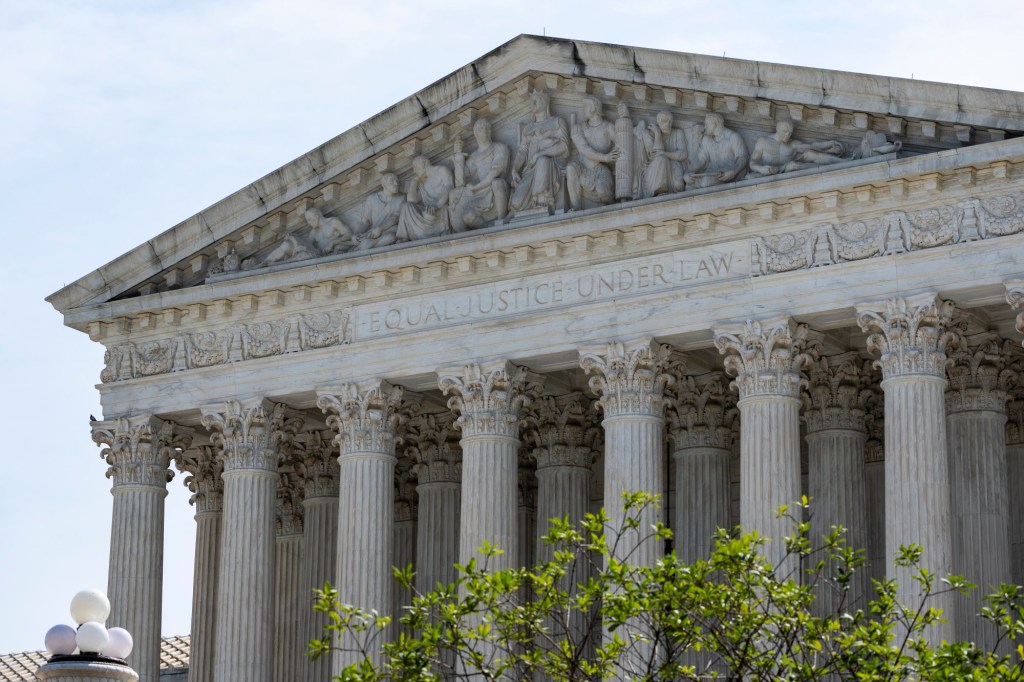
Nine years ago, in preparation for his retirement, engineer George Sheetz bought a plot of rural land in El Dorado County and applied for a county permit to place a manufactured home on his parcel.
Little did he know that what he thought would be a routine administrative transaction would turn into a legal dispute that would wind its laborious way through California courts, reach the U.S. Supreme Court — where he won a unanimous ruling — and is now back in California’s judicial system with the eventual outcome still uncertain.
El Dorado County was willing to give Sheetz his permit but only if he paid a $23,420 fee to offset the home’s supposed traffic effects along county roads and Highway 50. The levy resulted from a general plan adopted by county supervisors in 2004 and amended two years later to impose a “traffic mitigation fee” as a condition for receiving a building permit.
Sheetz paid the fee under protest but sued the county, contending that it violated the state’s Mitigation Fee Act, which requires that such fees have reasonable relationships to both the proposed development and its impact on public facilities, such as roadways. He also alleged that the fee violated U.S. Supreme Court rulings on property issues, declaring that excessive fees can be a form of extortion.
Sheetz lost in the trial court, which said the laws and rulings governing mitigation fees didn’t apply when they are enacted by legislative action, such as the El Dorado County’s traffic fee. In 2022, a three-member state appellate court panel unanimously agreed that the fees were legally valid. The state Supreme Court declined to take the case.
Sheetz’s attorneys and the Pacific Legal Foundation, a Sacramento organization that specializes in property rights issues, among other things, took his case to the U.S. Supreme Court. Last year, it unanimously rejected lower courts’ contentions that legislatively imposed fees are exempt from the Mitigation Fee Act and earlier Supreme Court rulings.
“There is no basis for affording property rights less protection in the hands of legislators than administrators,” Justice Amy Coney Barrett wrote in the decision, referring to the Fifth Amendment prohibiting arbitrary “takings” of property. “The Takings Clause applies equally to both — which means that it prohibits legislatures and agencies alike from imposing unconstitutional conditions on land-use permits.”
Pacific Legal Foundation hailed the ruling as closing a loophole through which governments, claiming an exemption for legislative acts, could impose fees without restriction.
“The government’s fee was nothing more than an exorbitant ransom to pay for permission to build a small, manufactured home,” the foundation said at the time. “It unfairly imposed costs that had nothing to do with his project.”
One might think that a unanimous decision by an often-divided Supreme Court might have settled the issue, but it didn’t.
While the Supreme Court rejected the California appellate court’s decision, it sent the case back down for “further proceedings not inconsistent with this opinion.” That opened the door for the state appellate court to have another go.
Last month, it grudgingly acknowledged the Supreme Court ruling that legislatively imposed fees are not exempt from scrutiny, “contrary to settled California law.” However, it declared that the fee imposed on Sheetz “is not an unconstitutional condition imposed on land use in violation of the Fifth Amendment’s takings clause. Accordingly, we again affirm the judgment.”
In other words, the case is back where it started nearly a decade ago with the $23,420 traffic mitigation fee being upheld by three state court judgments, notwithstanding what the U.S. Supreme Court declared.
We probably haven’t heard the last word yet.
Dan Walters is a CalMatters columnist.



